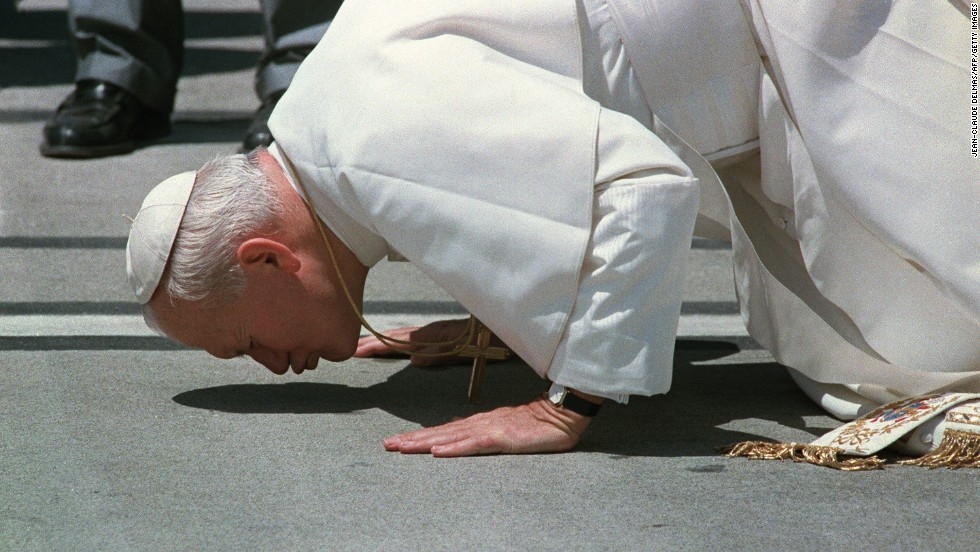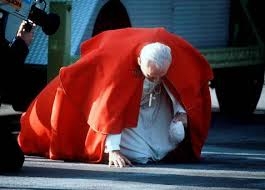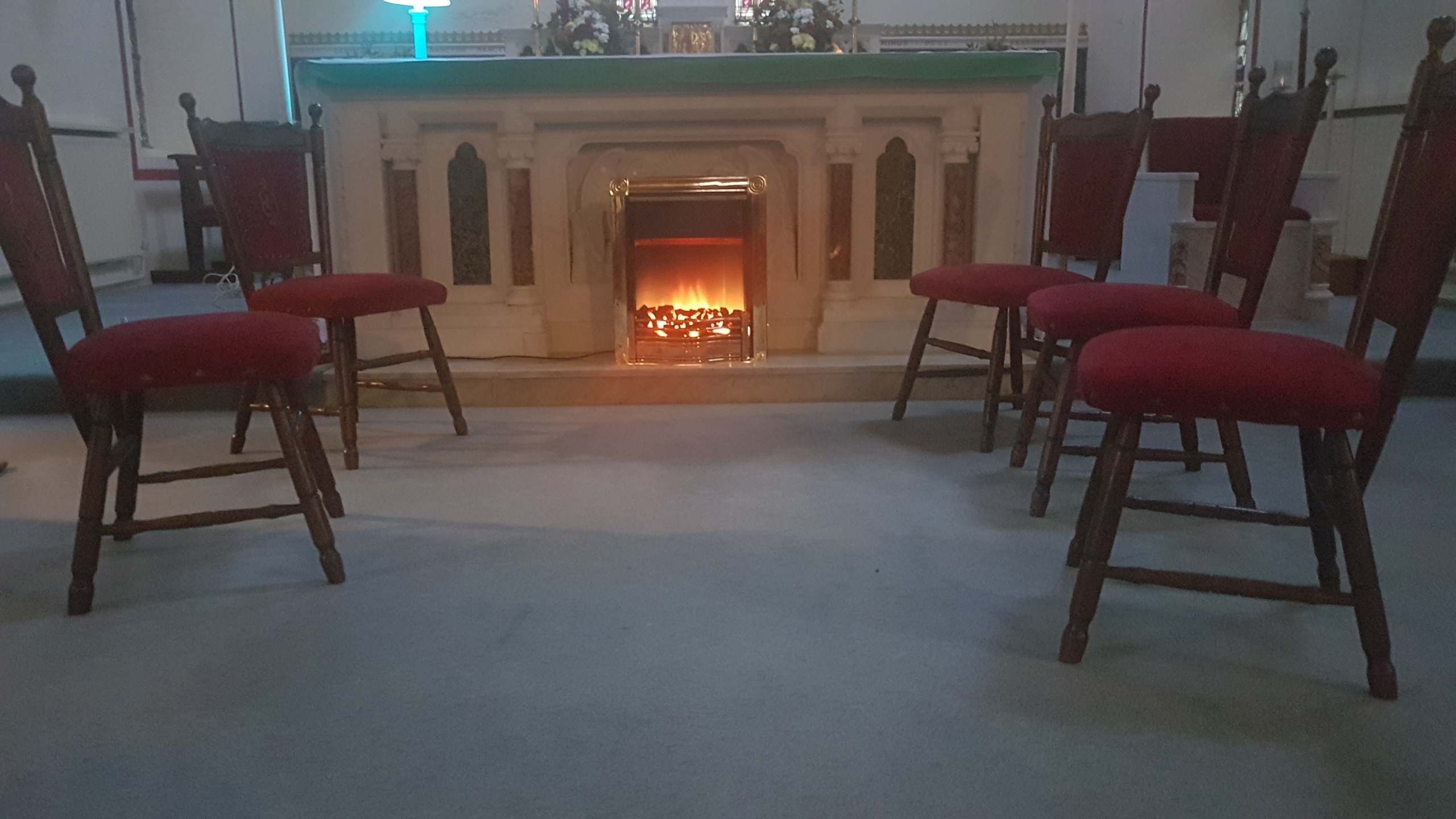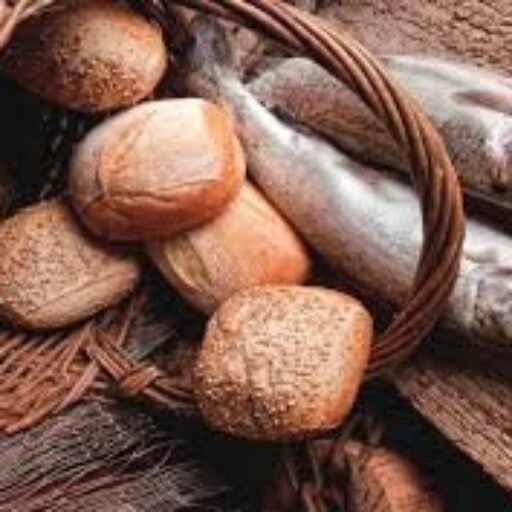
by Vincent | Mar 25, 2019 | Lent 2019
This poem by Fr Killian McDonnell, OSB is a very interesting take on The Annunciation. A priest gave me a card a number of years ago, following a retreat I had directed, and this was on the card. I liked it then, and since.

IN THE KITCHEN
Bellini has it wrong.
I was not kneeling
quietly at prayer,
head slightly bent
to show submission.
Painters always
get it wrong, skewed,
as though my life
were wrapped in the silks,
in temple smells.
Actually I had just
come back from the well,
pitcher in my hand.
As I placed it on the table
I spilled some on the floor.
Bending to wipe
it up, there was a light,
against the kitchen wall
as though someone had opened
the door to the sun.
Rag in hand,
hair across my face,
I turned to see
who was coming in,
unannounced, unasked.
All I saw
was light, whiter
than whitest white.
I hear a voice
I had never heard,
walking toward me,
saying I was chosen,
The Favoured One.
I pushed back my hair,
stood baffled.
With the clarity of light
the light spoke
of Spirit, shadow, child
as the water puddled
large around my feet.
Against all reason,
against all rationality,
I knew it would be true.
I heard my voice
“I have no man.”
The Lord is God
of all possibilities:
with Elizabeth no flow
of blood in thirty years
but six months gone.
From the fifteen years
of my Nazareth wisdom
I spoke to the light
in the joy of truth:
“Let it be so.”
Someone closed the door.
And I dropped the rag.

by Vincent | Mar 24, 2019 | Lent 2019

Pope St John Paul 11, kneels to kiss the ground at Dublin Airport – Irish Soil – September 1979
Coming down the steps on a September day in 1979, John Paul went down on his knees and kissed the ground at Dublin airport. It was a powerful moment of witness. In this gesture, he recognised the land, more than that, he bowed to the sacredness of the land he had chosen to visit. Other than a visit to Poland, it was his first visit outside Rome and was to be the first of many to countries all over the world. This gesture of kissing the ground remained a central part of all his visits. Indeed, there is footage of him, feeble now and tired and unable to kneel on the ground, being brought a bowl of earth that he might kiss it and acknowledge, as he did in Dublin that day, the soil beneath our feet.
As a child I remember attending a funeral in Connemara. I don’t remember much of the ceremony, but I have a clear recollection of the burial. The grave was filled in while we were still there and the Rosary was prayed, in Irish I imagine. When the grave was filled, the men who had taken turns filling it in, flattened the surface and then rolled out a long “sod” of grass. It was, for all the world, like a roll of carpet and they rolled it back into place over the filled in grave, patted it down and left it, as they had found it. Though young, it’s a vivid memory for me and I think I understood it for what it was, a sign of reverence of the earth. There was something said that when a man’s life is over, he should leave the world as he found it, no worse because of his presence. Respect.
Moses, in today’s reading, is told to take off his shoes for the ground on which he walks is “holy ground”. Respect.
Reflecting again on Trócaire’s Lenten Campaign this year, we are reminded of land-rights. Grass is grass and earth is earth wherever it is found, and rights are rights. There remains much injustice in our world. Much of Trócaire’s work seems to be linked with being on the side of right rather than might. The people working for Trócaire abroad are, in most cases, local people who have no stomach for oppression and want to make a difference in their own place. Respect.
Visiting Honduras a few years ago, I had the chance to witness some of this work and was surprised because prior to that, I thought of Trócaire’s workers in terms of being Irish Missionaries of sorts. I felt I would be meeting Irish men and women, miles away from home, working in difficult and dangerous situations. While I did meet some, what I learned was that Trócaire seeks to connect with like-minded people, native to the countries to which it brings aid, because these are the people who know the story best. Imagine a problem in Ireland and people coming from another country to fix that problem for us, only to return to their own country when the work was done. Yes, there might be a “fix” but the presence of the worker, the one who knows best the story, is central and crucial. The work done by Trócaire here in Ireland and abroad is crucial and the ability of people on our “ground” to recognise those best placed to make a difference is a key factor in the work being done and supported by us at parish level.
When John Paul kissed the ground of Ireland, he made a statement around respect. He knew that he would be here for a limited amount of time but wanted the people of Ireland, like Moses, to recognise the holiness of the ground on which they walked and, like the man buried in Connemara, to leave the world a better place, but in no way damaged, because we lived.
Respect!

by Vincent | Mar 20, 2019 | Lent 2019
 This image is from a gathering we had to celebrate the praying of the Rosary in the month of October. The idea, borrowed from the lived memory of many, sees chairs around the kitchen fire. Chairs used at the table for the sharing of the family meal and used also to welcome the visitor to the home – “Sit down and rest a while”. In the praying of the Rosary, the chairs became a sort of prayer space, with people kneeling beside them and maybe resting their arms on the chair. All rooted in home and in family, this is the heart of family prayer.
This image is from a gathering we had to celebrate the praying of the Rosary in the month of October. The idea, borrowed from the lived memory of many, sees chairs around the kitchen fire. Chairs used at the table for the sharing of the family meal and used also to welcome the visitor to the home – “Sit down and rest a while”. In the praying of the Rosary, the chairs became a sort of prayer space, with people kneeling beside them and maybe resting their arms on the chair. All rooted in home and in family, this is the heart of family prayer.
Reminded of this piece – it is entitled “The Trimmins’ Of The Rosary” by John O’Brien from “Around the Boree Log”. It might create a memory or two for some and possibly is a reminder of the central place prayer holds in family life. Maybe we need to hear that again this day ….
Ah! The memories that find me now
My hair is turning grey
Drifting in like painted butterflies,
From paddocks far away.
Dipping dainty wings in fancy
And the pictures fading fast.
Stand again in rose or purple
In the album of the past
There’s the old slab dwelling dreaming
By the wistful, watchful trees,
Where the coolabaks are listening
To the stories of the breeze.
There’s a homely welcome beaming
From it’s big bright friendly eyes
With the Sugarloaf behind it
Blackened in against the skies;
There’s the same dear happy circle
Round the borees cheery blaze.
With a little Irish Mother telling
Tales of other years.
She had one sweet, holy custom,
Which I never can forget
And a gentle benediction crowns
Her memory for it yet.
I can see that little mother
Still and hear her as she pleads.
“Now it’s getting on to bedtime,
all you children get your beads”
There were no steel-bound conventions in that old slab dwelling free;
Only this – each night she lined us up to say the Rosary.
E’en the stranger there, who stayed the night
Upon his journey knew
He must join the little circle, ay, and take his decade too.
I believe she darkly plotted, when a sinner hove in sight,
Who was known to say no prayer at all,
To make him stay the night.
Then we’d softly gather round her, and we’d
Speak in accents low,
And pray like Sainted Dominic so many years ago;
And the little Irish Mothers face was radiant
For she knew
That “where tow or three are gathered”
He is gathered with them too.
O’er the paters and the aves how her
Reverent head would bend!
How she’d kiss the cross devoutly when
She counted to the end!
And the visitor would rise at once and brush his knees –
And then
He’d look very, very foolish as he took the boards again.
She had other prayers to keep him.
They were long, long prayers in truth
And we used to call them “Trimmings” in my disrespectful youth.
She would pray for kith and kin,
And all the friends she’d ever know
Yes, and everyone of us could boast a “trimmin” all his own.
She would pray for all our little needs, and every shade of care
That might darken oe’r The Sugarloaf, she would meet it with a prayer.
She would pray for this ones “sore complaint”, or that one’s “hurted hand”,
Or that someone else might make a deal and get “that bit of land”
Or that dad might sell the cattle well
And seasons good might rule
So that little John, the weakly one might go away to school.
There were “trimmins” too that came and went
But ne’er she’d closed without,
Adding one for something special “none of you must speak about”
Gentle was that little mother, and her wit would sparkle free
But she’d murder him who looked around, while at the Rosary.
And if perchance you lost your beads
Disaster waited you.
For the only one she’d pardon was “himself” because she knew.
He was hopeless and ‘twas sinful what excuse he’d invent.
So she let him have his fingers, and he cracked them as he went.
And bedad, he wasn’t certain if he counted five or ten,
Yet he’d face the crisis bravely
And would start around again.
But she tallied all the decades, and
She’d block him on the spot
With a “Glory Daddah, Glory” and he’d
Glory like a shot.
She would portion out the decades to the company at large.
But when she reached the “trimmins”
She put herself in charge.
And it oft was cause for wonder, how she never once forgot,
But could keep them in their order,
Till she went right through the lot.
For the little Irish mother’s prayers embraced the countrywide,
If a neighbor met with trouble or was taken ill or died.
We could count upon a “trimmin” till in fact it got that way,
That the Rosary was but “trimmins” to the “trimmins” we would say
Then himself would start complaining for the public good, we though,
“Sure you’ll have us here till morning yerra cut them trimmins short”
But she’d take him very gently, till he softened by degrees,
“Well then let us get it over, come all hands to your knees”
So the little Irish Mother kept her trimmins to the last
Ever growing as the shadows o’er the old selection passed.
And she lit our drab existence with her simple faith and love,
And I know the angels lingered near to hear her prayers above,
For her children trod the path she trod, nor did they later spurn,
To impress her wholesome maxims or their children in their turn,
Ay and every sore complaint came right and every “hurted” hand,
And we made a deal from time to time and sold a bit of land.
And dad did sell the cattle well, and little John, her pride,
‘Twas he who said the Mass in Black the morning that she died.
So her gentle spirit triumphed for ‘twas this without a doubt
Was the very special “trimmin” that she kept so dark about.
But the yeas have crowded past us and fledglings all have flown,
And the nest beneath the Sugarloaf no longer is their own.
For a hand has written “Finis” and the book is closed for good.
There’s a stately red tiled mansion where the old slab dwelling stood.
There the stranger has the evening and the formal supper spread:
But I wonder has she “trimmins” now or is the Rosary said.
Ah! These little Irish Mothers are passing from us one by one,
Who will write the noble story of the good that they have done,
All their children may be scattered and their fortunes windward hurled,
But the “trimmins” of the Rosary will bless them round the world.

by Vincent | Mar 20, 2019 | Lent 2019

Statue of the death of St Joseph
I remember this statue from a visit to Castlederg Parish for a Mission in October 2015. It was in one of the other churches in the parish and I went for a visit one afternoon. It recalls the death of St Joseph. I had never seen or imagined a statue like this before but it seems so right to recall Joseph in this way. He was an honourable man who sought to put his family’s needs before his own. A good man for sure and one well worth imitating during these Lenten days.
That’s the thought really – striving to be honourable in all we say and do.

by Vincent | Mar 18, 2019 | Lent 2019
 The key-line in today’s readings at Mass is “Be compassionate as your Father is compassionate”. It goes on to say,”Do not judge, and you will not be judged yourselves; do not condemn, and you will not be condemned yourselves; grant pardon, and you will be pardoned”.
The key-line in today’s readings at Mass is “Be compassionate as your Father is compassionate”. It goes on to say,”Do not judge, and you will not be judged yourselves; do not condemn, and you will not be condemned yourselves; grant pardon, and you will be pardoned”.
It makes so much sense and yet is not always easy to live by or recall, not least when we feel wronged. This remains, nonetheless, at the heart of our faith and the Christian way of living.
Into the second week of Lent now, maybe it’s not a bad challenge to set before us.







